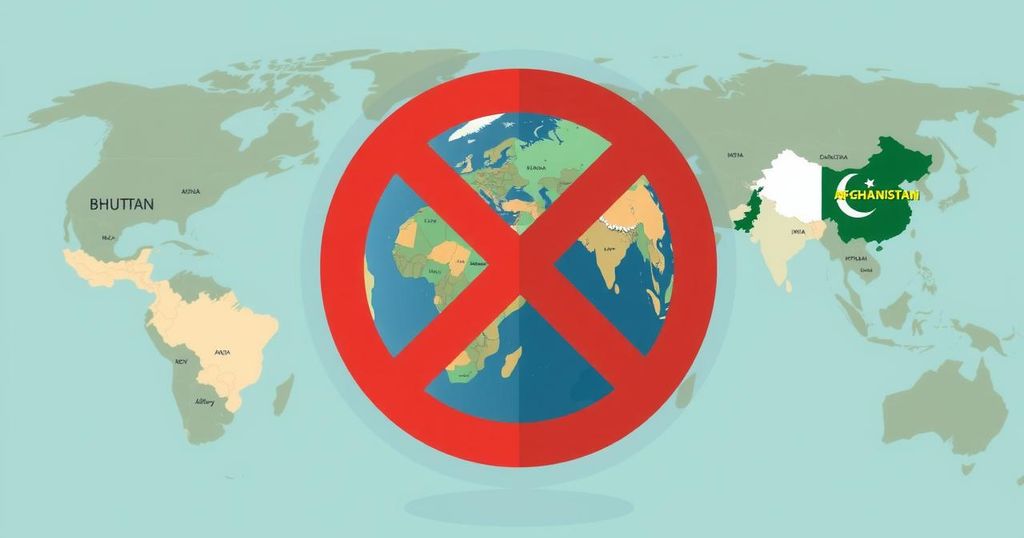Global news
AFFAIRS, AFGHANISTAN, AFRICA, ASIA, BHUTAN, DEPORTATION, DONALD TRUMP, HUMAN_RIGHTS, INTERNATIONAL RELATIONS, IRAN, LIBYA, MINISTRY, MINISTRY OF, MINISTRY OF FOREIGN AFFAIRS, NORTH KOREA, PAKISTAN, SECURITY, SOMALIA, SUDAN, SYRIA, TRUMP, U. S, US, US DEPARTMENT OF HOMELAND SECURITY, YEMEN
Isaac Bennett
0 Comments
Understanding the U.S. Travel Ban on Bhutan and Its Implications
The U.S. has placed Bhutan on a travel ban list due to high visa violations by its citizens, prompting national security concerns. This decision presents challenges for Bhutanese nationals and risks straining diplomatic relations. Bhutan’s inclusion amidst conflict-heavy nations raises questions about the motivations behind the U.S. policies.
The United States, under the administration of Donald Trump, has implemented a more stringent policy regarding travel bans, categorizing 43 nations into three lists: Red, Orange, and Yellow. The most severe restrictions apply to countries on the Red List, which includes nations rife with conflict such as Afghanistan, North Korea, and Syria. Notably, Bhutan, often celebrated for its high levels of happiness, has unexpectedly been included in this restrictive category.
One primary reason for Bhutan’s inclusion is the high rate of visa violations by its nationals; specifically, 37% of Bhutanese visitors allegedly overstayed their visas last year. This trend has raised significant national security concerns within the U.S. Furthermore, there has been an alarming increase in the number of Bhutanese individuals entering the United States through unauthorized means.
The implications of Bhutan’s placement on the Red List extend beyond just visa applications. Bhutanese citizens will now face rigorous screening processes, and in many instances, their applications for visas may be denied without clear justification. This situation poses substantial challenges for Bhutanese students and professionals who seek educational and employment opportunities in the U.S.
This decision is expected to strain the generally positive diplomatic relations between the United States and Bhutan. In response to the travel ban, Bhutan’s Ministry of Foreign Affairs has formally requested a reevaluation of this decision, emphasizing the importance of the mutual ties between the two nations.
Among the countries on the Red List, most are grappling with severe issues such as terrorism and civil unrest, rendering the travel ban understandable. In contrast, Bhutan’s inclusion is puzzling, raising questions about the rationale behind such stringent measures on a nation known for its stability.
In summary, the U.S. government’s decision to impose a travel ban on Bhutan stems primarily from concerns regarding visa violations and illegal entry by Bhutanese nationals. This unexpected inclusion highlights the potential challenges facing Bhutanese citizens, particularly students and professionals. Moreover, it underscores the potential ramifications on diplomatic relations between Bhutan and the United States, as Bhutan’s Ministry seeks reconsideration of the restrictions.
Original Source: www.india.com




Post Comment